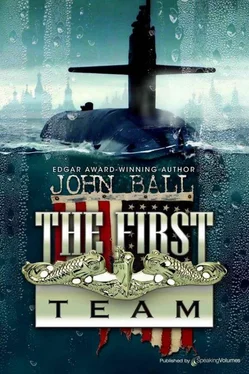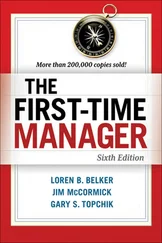Джон Болл - The First Team
Здесь есть возможность читать онлайн «Джон Болл - The First Team» весь текст электронной книги совершенно бесплатно (целиком полную версию без сокращений). В некоторых случаях можно слушать аудио, скачать через торрент в формате fb2 и присутствует краткое содержание. Год выпуска: 2013, Жанр: Триллер, на английском языке. Описание произведения, (предисловие) а так же отзывы посетителей доступны на портале библиотеки ЛибКат.
- Название:The First Team
- Автор:
- Жанр:
- Год:2013
- ISBN:нет данных
- Рейтинг книги:5 / 5. Голосов: 1
-
Избранное:Добавить в избранное
- Отзывы:
-
Ваша оценка:
- 100
- 1
- 2
- 3
- 4
- 5
The First Team: краткое содержание, описание и аннотация
Предлагаем к чтению аннотацию, описание, краткое содержание или предисловие (зависит от того, что написал сам автор книги «The First Team»). Если вы не нашли необходимую информацию о книге — напишите в комментариях, мы постараемся отыскать её.
Student protesters are being slaughtered in the Midwest.
The Jewish pogroms have begun.
You are now living in Soviet — occupied America!
One nuclear submarine and a handful of determined patriots against the combined might of Russia and Soviet-occupied America… The Most Explosive and Gripping “What If” Novel of Our Time!
First published January 1971
The First Team — читать онлайн бесплатно полную книгу (весь текст) целиком
Ниже представлен текст книги, разбитый по страницам. Система сохранения места последней прочитанной страницы, позволяет с удобством читать онлайн бесплатно книгу «The First Team», без необходимости каждый раз заново искать на чём Вы остановились. Поставьте закладку, и сможете в любой момент перейти на страницу, на которой закончили чтение.
Интервал:
Закладка:
“Second unit zero bearing rate, coming straight in.”
That was what Summers had feared; the incoming shot was aimed right down Mag say say ’s throat. The captain feared it, too, because he could do nothing in the few seconds that remained. He had one hope and all that he could do to help it was to pray. Underneath him his ship continued to sink slowly toward the bottom.
Then the silence inside the hull was broken from the outside; from bare audibility an insistent whine grew rapidly, ballooning in intensity with terrifying urgency. Summers and his shipmates had all faced death before; they faced it now a second away.
The deadly noise swept the length of the ship as it skimmed overhead, faded, and was gone.
“Active sonar,” the captain directed; after a few seconds he gave another order. “All back full.”
The unexpected command was obeyed immediately without question; within seconds the power being applied could be felt throughout the length of the hull. As the propeller cavitated the sonar pings went out; the inertia of the ship was great and the backward acceleration was very slow.
“Contact,” sonar reported. “Range four eight hundred yards, bearing three zero eight.”
“All stop,” the captain ordered.
Wagner could not follow his logic; he had expected some kind of evasive action and the reverse maneuver had him baffled. But he trusted the captain implicitly; if he had ordered full astern, there was a reason behind it.
“Range four eight hundred yards, bearing three one zero.” As rapidly as the information was supplied it was fed into the fire control system.
“All ahead full.”
“All ahead full,” the phone talker repeated. At that moment Walter Wagner understood one thing: that the captain was stirring up the water behind the ship, doing so deliberately. He deducted correctly that this was to confuse the enemy sonar briefly and to make it harder to read the ship’s position accurately.
“Resume course.”
“Ay, sir.”
No mean schemer himself, Wagner understood that one almost immediately: the enemy would expect evasive action since in all probability he was already reloaded and ready to fire again. At that game Magsaysay would be at a serious disadvantage, but by resuming her course she might be doing the one thing he would not expect. In addition there was the advantage that the ship was under way in the direction she most wanted to go.
“Range four six hundred yards, bearing three one three.”
“Shoot one.”
“Ay, sir. Shoot one.”
“Shoot two.”
“Shoot two.”
“All stop.”
“All stop, sir.”
Once more the submarine fell silent except for the torpedo room forward, where fresh rounds were being loaded into the tubes. The men doing that knew that a countershot was a near certainty, but they had no time to dwell on it. While two fresh torpedoes were being moved into position the ship began to settle once more; she had limited forward speed to dissipate this time and the control surfaces lost their effectiveness very quickly. On the con the exec watched the face of a clock, keeping track of the parade of the seconds.
Sonar reported once more. “Torpedoes departing, range three five hundred yards.”
“Passive sonar,” the captain said.
“Passive sonar, sir.”
Silently the ship drifted deeper into the water; the depth gauge needle moved very slowly, sterile of any emotion, performing its mechanical function as it had been designed to do.
“Hit!”
The captain remained motionless, waiting for the added word he was expecting. It came almost at once. “Incoming torpedoes, two units.” It made no difference then if the reported hit was valid or not; the enemy submarine had put two shots into the water and regardless of what had happened to the launching vehicle, they were independently on their way.
“One unit bearing left.”
That was good news, but the shots were sure to be spread — automatically, one would have to miss.
A knot of steel-clad seconds was measured off by the clock.
“Number two unit bearing slightly right.”
The tension did not ease. In those tight moments Walter Wagner wondered if the enemy commander had directed his shots that way anticipating evasive action and if Magsaysay ’s captain had outwitted him by maintaining a straight course very briefly instead.
“First unit passed.” That was the expected news. Silence became rigid in the submarine as the second sound-seeking torpedo, which could be equipped with a proximity fuse and possibly a magnetic anomaly detection system, grew louder in the sonar.
The sound of the torpedo propeller could be heard as it passed by, slightly above and only a little to the right.
“All ahead full.”
“All ahead full.”
Once more Magsaysay began very slowly to gain headway in the water, her control surfaces gradually taking hold and aligning her on course. On the con the captain began to walk back and forth. Being careful to keep out of the way, Wagner studied him and was relieved to discover that he was human after all. For there was a fine mist of perspiration on the captain’s forehead, not from fear, but from the weight of responsibility that was his and that he had to bear.
The exec went to the M.C. “Sonar, do you have anything?”
“Negative, sir. Do you wish me to go active?”
The exec looked at the captain, who shook his head.
“How good was the hit?” the exec asked.
“Definite, sir, I’ll swear to it.”
“Carry on.”
“Ay, sir.”
It was silent again after that. For the first time since he had been on board the submarine, Walter Wagner felt closed in. Claustrophobia did not disturb him, but he wanted almost desperately to see what was going on; he felt like a blind man who must depend on his ears alone to tell him what is happening. There was a multitude of possibilities: the submarine that had attacked them might be playing possum; the hit could have been fatal or, as far as he knew, minor. There might be many other potential attackers in position, and Magsaysay was not an attack-type submarine — she carried only a very limited torpedo load. In fact she had a mixed load which included some SUBROC missiles, highly useful in certain situations, but cutting down her available torpedoes still more. And there was the element of battle luck with which he was all too familiar: in any kind of conflict situation luck could have a lot to do with it — such as setting a well-aimed torpedo slightly too shallow. The breaks of the game worked according to the law of averages. The breaks had all been good so far; a bad one was due any time.
Gradually Magsaysay began to pick up speed, overcoming her inertia and the strong tendency of the propeller to cavitate in the water. When a full half hour had passed and there was no sign of any further activity Wagner assumed that they were somewhere in the Bering Strait, but the frustrating inability to see anything but the inside of the submarine denied him the sharp sense of reality. Minute by minute, as the ship moved onward, he gave thanks that another half mile had been covered; had he been running things from the enemy’s side he would have had some surprises prepared; the waters could have been mined by aircraft.
“Why don’t you go and get some chow?” the captain asked him.
That was as polite a dismissal as he had ever heard. “Good idea,” he answered and climbed down from the con onto the main deck. In the wardroom he discovered that he had been hungry without knowing it. By common consent no one had referred to food when the ship had been running without any provisions; now that there was plenty once more he still seemed to feel the discomfort of those days before the Dolly had been found ready and waiting.
Читать дальшеИнтервал:
Закладка:
Похожие книги на «The First Team»
Представляем Вашему вниманию похожие книги на «The First Team» списком для выбора. Мы отобрали схожую по названию и смыслу литературу в надежде предоставить читателям больше вариантов отыскать новые, интересные, ещё непрочитанные произведения.
Обсуждение, отзывы о книге «The First Team» и просто собственные мнения читателей. Оставьте ваши комментарии, напишите, что Вы думаете о произведении, его смысле или главных героях. Укажите что конкретно понравилось, а что нет, и почему Вы так считаете.












